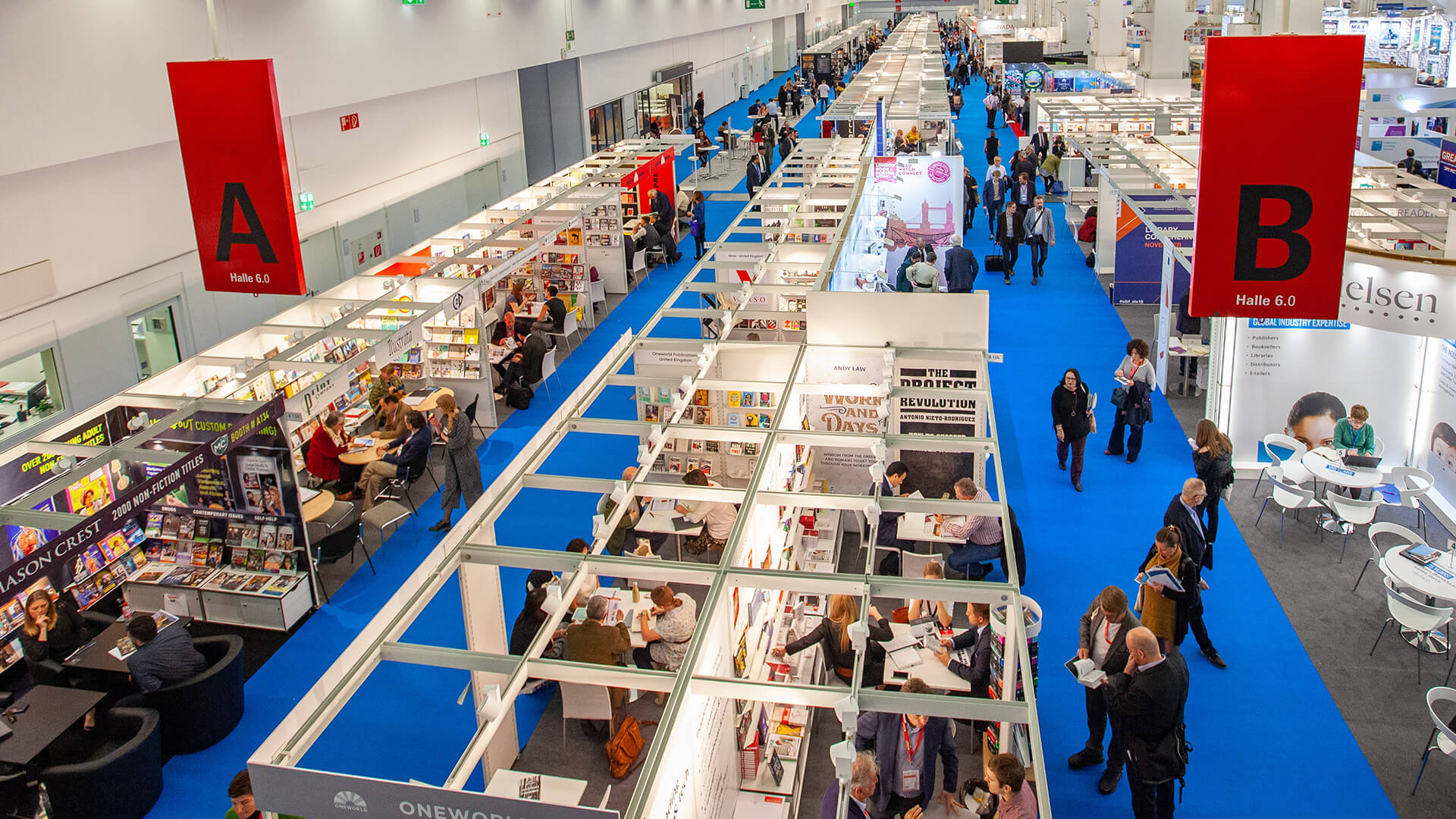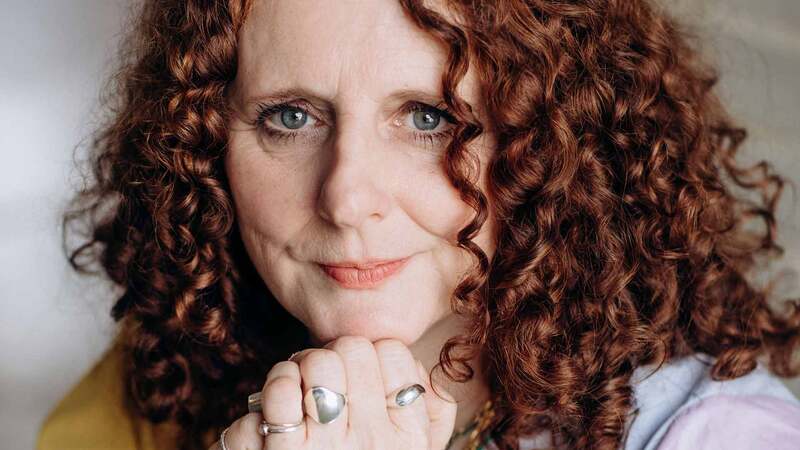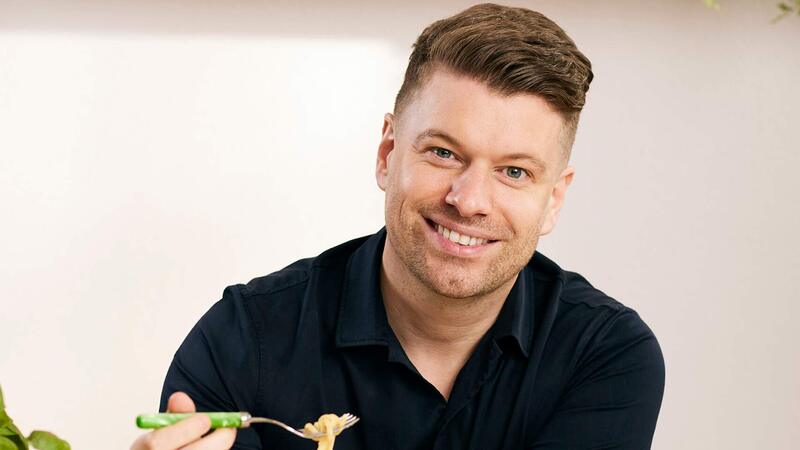You are viewing your 1 free article this month. Login to read more articles.
What Frankfurt meant to Ukraine
The support shown to Ukrainian publishers at Frankfurt Book Fair has had a powerful impact.
A few days ago we returned from the Frankfurt Book Fair to Ukraine. During this time, I realised how huge book events can be and what opportunities such publicity provides, especially considering how peripheral Ukraine still is to the global industry – although every year international interest in us is noticeably increasing.
This year, we participated for the first time as an independent publishing house with our own stand, which the organisers of the fair invited us to curate. We also invited other Ukrainian publishing houses specialising in artbooks, photobooks and books about art to participate. It was an unexpected appearance for us in the symbolic (and real) centre of the book industry.
The representation of Ukraine at the Frankfurt Book Fair was exceptional in both its scale and the attention paid to it. More than 40 Ukrainian publishing houses and five stands were presented, more than 20 public events were held, and a special program for publishers from Ukraine and neighbouring countries was conducted for the first time. It was a huge deal that Serhiy Zhadan received the Peace Prize of the German Publishers and Booksellers Association in Frankfurt. Also, for the first time, Ukraine was represented in person by Olena Zelenska, the First Lady, and online by the President of Ukraine. We felt incredible support from representatives of other countries and stands, not to mention the organisers of Frankfurt themselves.
We started preparing for participation in the fair in June. The first challenge was how to bring a large number of books to Frankfurt. We divided our efforts: one lot of books was delivered by the Goethe Institute, which this year became the main partner of the National Stand of Ukraine, and the second lot we crammed into the trunk of the car which took us from Kyiv to Frankfurt. On the very day when the books were due to go to Germany, massive shelling began in Ukraine and critical infrastructure was damaged. Customs was closed for several days and there was a risk that the books would not arrive on time. In the end, we, like many other Ukrainian publishing houses, received our books on the last day of the stand’s installation, so we put it together in express mode. Due to the power outage in Kyiv, we also did not manage to receive copies of the new edition of our book Znak: Ukrainian trademarks of 1960-1980s. The power went out at the moment when the books were being printed on an offset printing machine. But we still managed to get a few copies on the second day of the festival. They were brought by bus by our colleagues from the publishing house Artbooks.
When we arrived from our de-energised cities to a German business centre, where every minute was scheduled and there were many plans and proposals around, our spirit and worldview somewhat shifted and an inner strength to continue our work appeared
Our goal was to present eight publishing houses: ist publishing, MOKSOP (Museum of Kharkiv School of Photography), Dovzhenko Centre, Artbook, Rodovid, Understructures, Wawe, and Booksha. We wanted to show that we continue to make books. Upon my return, I came up with the idea to ask fellow attendees about the results of their visit. Almost everyone I talked to described the fair as a real "breath of fresh air" since Covid-19 and the war. Indeed, when we arrived from our de-energised cities to a German business centre, where every minute was scheduled and there were many plans and proposals around, our spirit and worldview somewhat shifted and an inner strength to continue our work appeared.
For the publishing house їzhakultura, participation in Frankfurt Book Fair gave the opportunity to meet with partners, establish new contacts and get acquainted with publishing trends in the field of gastronomy, as well as present key projects. Publisher Artem Braichenko says that "during Frankfurt Book Fair we did not plan neither rights sales nor contract signings, as all our work processes are held only online". Anton Martynov from the Laboratory publishing house, which specialises in translations of non-fiction books, agrees. He notes that at the fair publishers develop networking while "signing a contract, if any happens, is a symbolic procedure that has already been agreed upon in advance".
This was the first Frankfurt Book Fair for young publishing house Vikhola, which launched in 2020. It has never had the opportunity to travel and participate in industry events before. Its co-founder Iryna Shchepina explains: "The main goal I set for myself was not to sell rights for books, but rather to expand the circle of acquaintances. Of course, there are online programs and you can simply email people, but those who work with rights sales know that ‘live’ acquaintances play a much bigger role. In Frankfurt, I finally met people in person who I had previously only known through Zoom calls or email correspondence. At these meetings, foreign colleagues showed sincere interest in our books or said that they knew which of the publishers they could recommend them to. We will be able to evaluate later how successful this Frankfurt Fair was, when new acquaintances, I hope, will develop into co-operation. The world’s attention to Ukrainian literature has increased and now we have to maintain it."
The value of the festival is also, as Artem Braichenko from їzhakultura says, "in the fantastic opportunity to visit the stands of the best publishers that create products in our segment, and to personally hold in our hands all the books, learning current trends". After all, it is impossible to do this online.
Ukrainian publishing houses also worked on expanding the distribution of their books. For example, we met with distributor Idea Books (Amsterdam) to discuss the terms of further co-operation and met in person with a bookstore that already sells our books through Amazon in Germany. Publishing house Artbooks arranged a co-operation with distributors from the Czech Republic, Latvia and Belgium. "We went to the fair because it was very important for us to meet our partners in person, confirm our preliminary agreements and receive understanding and support," says Kateryna Doinychko from Artbooks.
It was also an opportunity to sell translation rights. Olha Besarab of Old Lion Publishing House, one of the most popular and largest publishing houses in Ukraine, reports that they have already received offers to buy rights for their books in Germany, Poland, Slovenia and South Korea. She says, "the best music to our ears were numerous compliments from foreign publishers and agents on the design of our covers and the quality of books. It was also very touching and very important to feel the support of foreign colleagues because of the war in Ukraine. At such moments you realise that we are not alone, and how wonderful it is to be a part of the global book community". Olena Grubb, publisher of niche publishing house Magenta Art Books, suggested that the current war in Ukraine had turned former competitors into companions. "We witness Ukrainian publishers uniting under the umbrella of the Ukrainian Book Institute and multiplying the presence of our finest examples of literature and book-making at the world’s main book fair".
So, participation in the Frankfurt Book Fair brought a lot of thoughts, acquaintances, support – and proved that there is still more work ahead. It was not only about the separate work of each particular publishing house, but also about the work of the Ukrainian book market as a whole.
Translated by Iryna Kurganska

















